My Slightly Late Game of the Year Awards
By TheWildCard 0 Comments
Apparently, it’s that time of year again where reviewing the gaming year in the form of lists is fashionable. While 2018 didn’t have the series of barnburners that highlighted 2017 discussion, 2018 was no slouch either. Personally, I probably had a stronger year this year than last, so without further ado lets get to some shoutouts.
Old Game of the Year
Yakuza 0- So I’ve been on the Yakuza bandwagon since 4, so I this didn’t sneak up on me like it did for some people. That said, it is the biggest, most refined Yakuza yet, and that’s a pretty magnificent thing. The way these games able to jump from magnetic, well directed story cutscenes to wacky, legitimately funny side adventures, and back again continues to impress. Great music too. This probably would have topped my list last year had I played it then, so if you still haven’t had any Yakuza in your life here’s another vote of confidence for it.
Honorable mentions: PaRappa the Rapper, Monster Hunter Stories, Yakuza Kiwami, The Elder Scrolls III: Morrowind
Biggest Surprise
Monster Hunter World- I had hopes this would be the MH game to finally line up and click with me, but I had no idea it would click as hard as it did. More details below!
Honorable mentions: Koihime Enbu RyoRiaRia
Most Disappointing
Ni No Kuni II- I loved the original Ni No Kuni, which benefited a bit from being a lavish high budget JRPG in a time when there were few comparable games were coming out. It didn’t feel like a game that needed a follow up whatsoever. So, while I had enough attachment to the name for this to be an automatic pick up, I didn’t come into this with a lot of anticipation or expectations. Unfortunately, the sequel still fell short of even those expectations. First off, the battle system is pretty dull. I know not everyone like the first games battle system, which admittingly inhabited a space between turn-based but with real-time elements and relied on companions with not great AI, but I got less out of the switch to full action-RPG. On top of that, the game was drastically too easy at launch, like bizarrely so. Yes, there are optional encounters that have big difficulty spikes, and later harder difficulty levels were patched in, but neither make the battles that much more interesting. Granted it doesn’t help that there isn’t much narratively pulling me forward either. Characters are flat, and from what I could tell don’t get much development after their initial introduction. Also, the central premise is creepy? It’s about a prince who after escaping a coup decides that fighting and war sucks, and so decides the way to bring peace about is for the entire world to unite under his rule. Like…WHAT? That sounds like a “peace plan” any two-bit authoritarian in our reality comes up with. This is the good guy? I didn’t finish it so maybe it goes somewhere, but even from the get-go that’s tonally bizarre premise to be the main thrust of your quest. Most everything I’ve read is that the story stays extremely naive throughout though.
And this game doesn’t even look or sound as good as the first one. Sure, the characters look like the usual cell-shaded mastery you’d expect from Level 5, but the environments look washed out in comparison. I booted up the original to be sure, and yeah, the environments of the original game are notably more colorful and cohesive of the Gibli style. It’s also feels budget in places too, like the noticeable lack of voice acting. It does have voice acting, but it’s so sparsely used that it feels jarring. For example, there’s a scene relatively early in the game where a character is giving a stirring speech. Starts with in game text box (no voice acting), then cuts to a more cinematic scene with full voice acting, proceeds to say a grand total of one or two sentences, then goes back to continue same speech with dialogue box w/ no vo. WHY?! What’s the point of half-assing like that? I don’t expect or need every line to be dubbed in this kind of game, but when it’s that jarring it’s distracting. When I can’t remember what a character’s voice sounds like because it’s been so long since they had a spoken line of dialogue—that’s a problem. It doesn’t help that the original was such a tour-de-force of production value, the sequel feels almost direct-to-video in comparison.
All that said I won’t necessarily say Ni No Kuni II is a bad game, just disappointingly bland. The original had a spark that lifted it above most Level 5 joints. The sequel feels sadly feels undercooked like a lot of Level 5’s weaker titles.
Dishonorable Mention: Dragonball FighterZ
New (To Me) Board Game of the Year
Nexus Op- Hell yeah I’m talking about some table top gaming! I consider analog gaming an important part of a modern gaming diet. While I didn’t get a whole lot of new games under my belt this year, I did finally get to play Nexus Ops, a sci-fi “dudes on a map” (essentially a table top 3 or 4X descendant of Risk) game. It’s all about moving units to explore the game board, fighting other players’ units to capture territory, generating resources to produce more units, and completing objectives via battling and/or territory control. First released in 2005, it is old enough to be considered a classic. What remarkable about Nexus Ops is how compact and tight of a package it in delivering that “dudes on a map” feel. Its rules are straightforward enough that most people will be able to grasp it, it gets going quickly, it doesn’t take up that much table space or that much set up, yet it is substantial enough to satisfy that dudes on a map itch. The randomness of the private objectives can be a little swingy for some, but if that’s a problem you can play with the public objectives variant. Speaking of variants, there’s quite a bit include in the rule book, including alternate unit stats, team play, and semi-randomized board states every game, giving it a lot of replayability. It’s a shame there aren’t more example of board games of this type in this kind of package, but to be honest I’m not sure how this can be improved on. Great piece of design, I doubt this one will ever leave my collection.
Notably Games That Might Have Made the List Had I Gotten Around to Them
- God of War- Actually just picked this up but I need to get a few things off my plate before getting into this. Historically I’ve like the GoW games, but I’m ready for a fresh spin on the series. Only hesitations are concerns about the length (why does every notable non-indie game have to be time sinks these days?) and the general gaming equivalent of Oscar-bait the game gives off. Then again, maybe it’s more of a modern Resident Evil 4.
- Red Dead Redemption II- Historically I haven’t had much interest in Rockstar’s games, but everything about the immersive sim nature of this sounds fascinating, and like something I’d be into, criticisms of bad controls and dating mission structures notwithstanding.
- Spider-Man- Got to say this looks “another one of those games” but this one has Spidey so *shrug*
- Spyro Reignited Trilogy- Spyro hits the sweet spot of did play them some back in the day and have some nostalgia for them, but didn’t play extensively, especially after the first one, so it will be fun go back to them
- Yakuza 6 and Yakuza Kiwami 2- Love these games but can only play so many of them at a time so I’m always playing catch up. Expect at least one of these to be competing for Best “Old” Game category next year.
Top 10 Games of the Year (As of now)
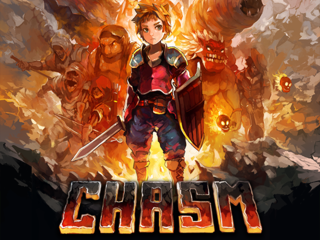
10. Chasm
2018 was a good year for me, but I’ll be honest I focused on older backlog games more than new releases for good stretches of the year, which is why something like Chasm sneaks in at #10 here. It is a faithful indie love letter to Symphony of the Night and, yes, we’re up to our knees with these at this point, and no, it doesn’t do a whole to differentiate itself from either it’s source material or other contemporaries. It’s got some good music and a nice look to it, but even that isn’t hard to find on the indie scene these days. Still, I had a good time with it and I’m not the biggest Metroidvania aficionado, so that’s gotta say something.
9. Person 3: Dancing in Moonlight & Persona 5: Dancing in Starlight
Persona 4: Dancing All Night was silly but enjoyable spinoff that made sense in that Persona games have excellent music. The P3 and P5 equivalents have a few tweaks but are basically more of the same. The fact that notes are supposed to be pressed as they move to the edges of screen makes it better suited for handheld than tv play though, or the bigger you’re tv is, the harder it is to play. That bizarre design aside, it’s similar to P4 in that they aren’t great rhythm games, but they’re fun enough for what they are. Just don’t pay more than $30 for either one though, as the thin amount of content is bolstered by lots of dlc, so YMMV.
8. Soulcalibur VI
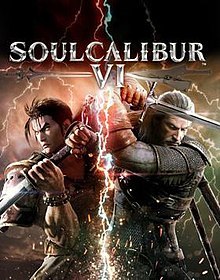
I’m kind of a weird Soulcalibur fan in that I’m a fan of the series, but I’m not as hung up on SC 1 and 2 like a lot of the fanbase is. I liked the original Soul Edge/Blade (and hate when people act like it never existed!), liked 3 and 5 a lot (even while acknowledging their problems). VI though was getting the buzz as being the one to finally return the series to the glory days of SC 2. Does it? Well, it does have some of the movement speed 2 had and it does have the core roster of fan favorites for the most part. I’m a bit torn on reversal edge mechanic. Yes it’s pretty punishable if you’re looking for it, but if you see it multiple times a round I feel it slows the fight too much. Meter management is a little more obtrusive than I’d like too, even though there isn’t that many mechanics tied to it really. Game has a good amount of single player content in response to the complaints of 5, but I can’t say it’s terribly interesting to go through.
The core of weapon-based 3D fighting is still good though, and I’ve liked what they’ve done to some of the characters. The biggest problem I have with the game might simply been how rude of an awakening going online with this has been. I’ve played a lot of Soulcalibur over the years, but I’ve always been a pretty mashy player; I’ve never internalized what’s safe vs. risky in SC well. Or barely at all really. Don’t know how much more time I’m going to put in to sharpen my skills, but it’s another solid entry in the series.
7. Dead Cells
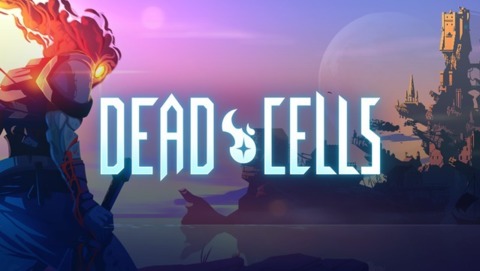
If you like games that just feel good to play Dead Cells is the game for you. A combat intensive rogue-like platformer. This has been getting a lot of buzz since debuting in early access, and it’s easy to see why. Controls are super responsive and fluid, allowing for a lot of precise movement while also making combat feel satisfying and fair when you mess up. It’s got that formula of being hard for the rogue-like appeal while giving you the satisfaction of progress in slowly building up permanent upgrades. It’s not a new formula but combined with how good the game plays it’s a good package. That said, because there is a certain order levels come up and part of the levels’ layout are the same, it can make the later parts of the game more of a slog for me. Run based games are fine, but if I’m taking 20+ or even 30 minutes per a run and not have that much to show for it in terms of permanent upgrades my enthusiasm damped some. Yes with enough upgrades and experience you can fly through those earlier level real quick, but it still got old after a while. After I got to the final boss (didn’t actually beat him) I didn’t have much desire to keep going. That said, I still see it as a finely crafted game, even if it isn’t quite for me.
6. Valkryia Chronicles 4
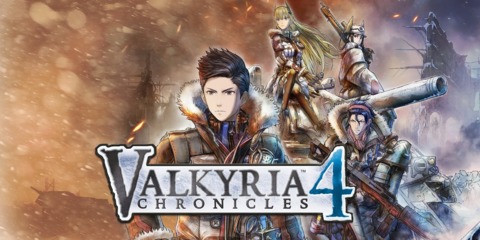
VC4 is very faithful to the original Valkyria Chronicles. It runs on the same engine, the are some mechanical additions but largely plays the same, time wise it takes place concurrent with the original game. It took a decade to get a second console VC game but VC4 feels like it could have came been made seven or eight years ago and just got around to be released this year. I was afraid it might be too safe for its own good, but at the end of the day that stuff didn’t bother me. It’s still a damn fun take on turn based strategy game where it zoom in and you get to move around characters and aim down the sights yourself. Story is about on par with the first game (a little worse in some areas, a little better in others), and the mission variety is still great. It isn’t a Yakuza 0-like breakthrough Sega would have liked it to be, but it’s a solid return of a cool series.
5. The Alliance Alive
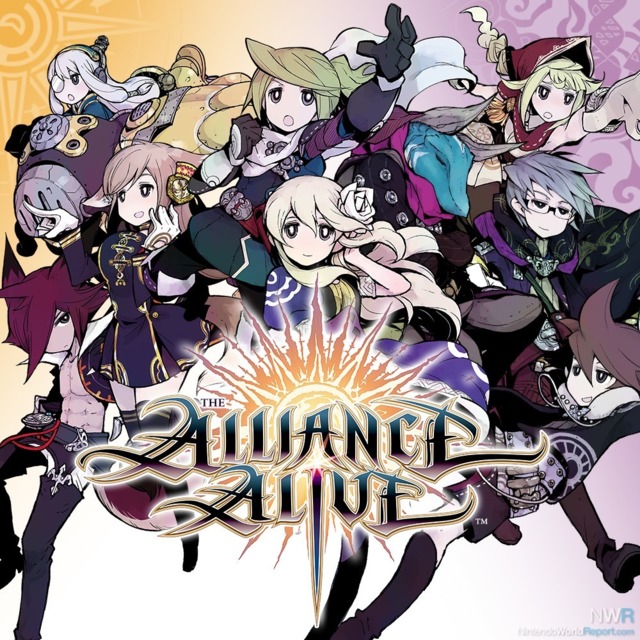
New games on the 3DS don’t exactly get much spotlight in a post-Switch world, but Alliance Alive is good enough to dust off the 3DS. A spiritual follow up to the equally alliterative Legend of Legacy, Alliance Alive is from veteran creators of Suikoden and the Saga games, and it feels like. Combat has that Saga-like leveling where character stats level up individually with a fair amount of RNG, but keep using certain skills and weapons and your proficiency will get better. The narrative on the other hand is reminiscent of Suikoden (there’s even duck people!). The narrative grabbed me more than I thought it would and is more ambitious and moody with cutscene direction that you’d expect for a 3DS game. Moves at a pretty good clip and avoids getting too hung up on character melodrama. The best thing about it though how it evokes feelings of JRPGs prior (specifically the PS1 era) it doesn’t feel like a nostalgia-bait throwback, which is a trap a lot of old-school Japanese RPGs fall into. It’s destined to be forgotten but I consider this a hidden gem for the system.
4. BlazBlue Cross Tag Battle
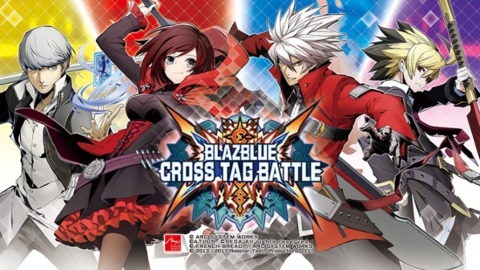
The other tag team fighting game with simplified controls in the pursuit of accessibility put out by Arc System Works this year. BBTag is a fascinating contrast to Dragonball FighterZ in how to make fighting games, specifically tag team-based ones, accessible for less hardcore players. Like DBFZ it has autocombos and simplified control scheme (to a fault in my opinion, the fact that you only have two regular attack buttons on the ground but light/medium/heavy when in the air is STUPID), but unlike DBFZ it’s tag mechanics are quite a bit more robust and allows for a good bit of expressions despite all of the universalization of the mechanics. Action is more horizontal and ground based then the average anime/Marvel fighters, which not everyone will like but I quite enjoy. The hook is of course that it’s a crossover smash up of different Arc System related fighters and (randomly) RWBY characters. It does a pretty commendable job of retaining some of the distinctive feel of those returning characters while funneling them into an original fighting system with a lot of universalized mechanics.
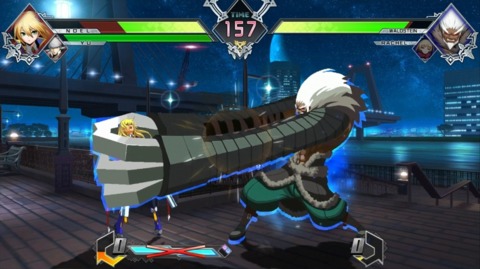
The first thing you’ll notice is that games go really fast. Health disappears at an alarming rate, which tagging in characters so you can recover red health a must. This also means that, unlike Marvel where teams are often built around defined roles of point/anchor/assist heavy characters, your team must carry the work load much more evenly most of the time. Also, the fact that every character has multiple assists means it’s easier to mix and match different teams together: some teams might have more synergy than others but a lot feel viable. Speaking of tag mechanics, one of the cool things about BBTag is how much it encourages you to use those assists. The biggest mental block I have with tag mechanics is I have a hard time wrapping my head around and second guessing if I’m using assists correctly, but in BBTag because your tag meter builds so quickly the game encourages you to be throwing stuff out pretty frequently, enough that it feels like I am doing something with them, regardless of how suboptimal it may actually be. And because every character has three assists, it easy to use them enough to start to figure out which ones are for combo extending vs. getting in vs. defensive “get off me” applications. Also your burst mechanic is tied to your assist gauge, and while fast aren’t invulnerable and can very much be baited if you’re too obvious with your timing, giving a good risk vs. reward dynamic. I won’t get it the weeds of the more advance stuff like cross combos and active switching but it’s pretty wild and very entertaining watch what pros at competitive tournaments are able to do. Finally, there’s Resonance Blaze, ie this game’s version of X-factor, which you can pop when down to one character during which you regenerate health and special meter and buffs like increased chip damage. The cool thing is that there are various levels of Resonance Blaze (1 to 4) that determines the size of said bonuses. You build said meter during the match by engaging with the tag mechanics while both of your characters are alive. So while it is a comeback mechanic, it’s one that you have to earn to get the most out of, which is the way to do it. Very clever.
Despite the story mode not being terribly interesting (though come on, what can you expect?) and the single player content not being as robust as I would like, the online modes are actually quite good in my experience, partly because the matches and loading times are so quick. In fact, I think I’ve put more time online with this than just about any fighting game I can recall. This is by far the tag-team fighter for me that does a great job of being simple in some ways, but compensated by meaty mechanical depth in other ways. I don’t know if it sold well enough to continue supporting it with more content beyond what they’ve already announced, but I want more.
3. Under Night In-Birth Exe: Late [st]
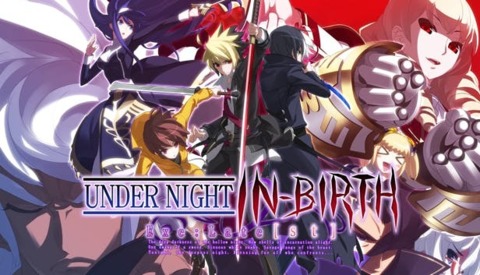
First off, yes that is a real name of a video game and there is a story mode that does explain what the name means (mostly). Highly unmarketable name aside (from the people that brought you Melty Blood: Actress Again Current Code; yeah they have a thing for nonsensical mash up of English), Under Night is an excellent 2D fighter from French Bread and publish by Arc System Works. There’re a few things that make it stand out from the crowd. First is that, although it looks like an anime fighter, and it ultimately is, it’s more grounded and footsie driven than the jump-canceling, combo heavy style associated with a BlazBlue. I wouldn’t say it’s a Street Fighter game in anime clothes, but if you prefer Street Fighter to Guilty Gear this might be more your speed. It’s still has some exaggerated elements though in that a lot of characters have ABSURD range with even regular attacks. It’s balanced though in that pretty much everyone has stuff that would feel broken, often range. I general don’t gravitate toward big grappler characters but it’s just fun to hit buttons with Waldstein with his ENORMOUS arms that take up wide swaths of the screen.
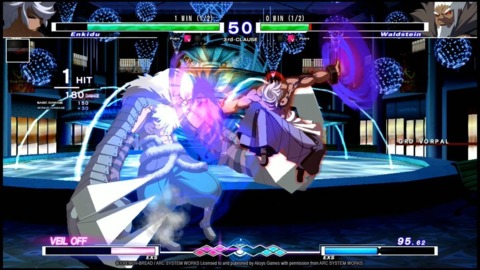
The last thing I want to hit is how good the game feels to play. You know how a lot of anime fighters have a “gatling” system of hitting light/medium/heavy buttons naturally combo? Well Under Night one ups that by having Reverse Beat, meaning you can go back down the ladder as well. This means that the game feels buttery smooth to play. There’s actually a Persona 4 Arena-like auto-combo button (mash light attack for a combo) that I wasn’t even aware of for a good while because it’s just so easy to hit buttons and throw stuff out there, and it feels like you’re actually doing something regardless of how amateurish you actually are. Add in a good variety of character movesets and you have great fighting game. The tutorial deserves special mention too because it is up there as one of the best in the genre in terms of depth, being quite thorough in explaining wrinkles you might not have thought about and explaining a lot of universal fighting game knowledge that can seem so esoteric from the outside. Great game that deserves more love.
2. Dragon Quest XI: Echoes of an Elusive Age
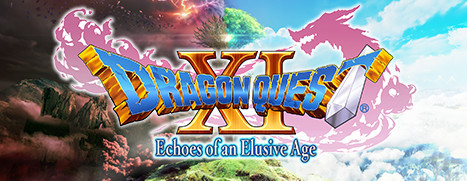
I came into Dragon Quest expecting another solid entry in the venerable series, as the series consistently delivers (even if I don’t love all of them). Instead has vaunted over all expectations and is one of the strongest RPGs I’ve played in the last handful of years. At it’s core it’s still Dragon Quest in terms of narrative tone and simple but rock solid mechanical foundation, but the HD visuals are leveraged really well, with an emphasis on textures of monsters and clothing that really pops. Coming in I didn’t think it would grow on me the way DQ VIII’s legendary presentation did, and while that still might be the best expression of Toriyama’s art, XI is a real looker as well (some less than great facial animation aside) that captures the light nature of Dragon Quest’s appeal.
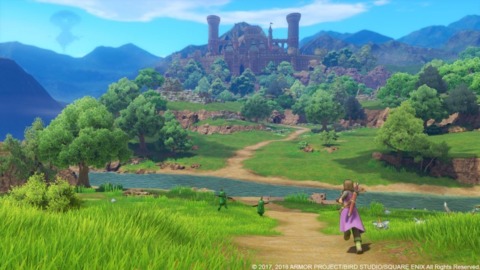
Dragon Quest’s strength has always been those classical fairy tale vibes more than plot machinations or characters, which is why it’s surprising strong party members stand out in this one. All of them are pretty memorable and get moments to endure themselves to the player. Sylvando in particular is a standout, but Rab, Jade, and the twins all have a lot of personality; best DQ main cast by a good margin. But the most impressive thing about the narrative is the game’s pacing: despite me being a hundred hours into the game and still haven’t seen the credits (seriously it’s massive) the game’s pacing has been extremely good. Not exactly brisk of course, but for all its length it moves at a pretty good pace, even when revisiting areas there’s enough different to be interesting. Some of the longer entries in the series definitely struggled in this area (I’m looking at you VII and VIII), so to have a new one be this meaty while still moving at a decent clip is really phenomenal. That’s probably because the story just builds momentum the entire time.
I’m having a hard time capturing everything that makes this so great, but the short answer it’s just a delight to play and while it is traditional, it hits its notes masterfully. It probably isn’t going to change anyone’s opinion of the series, but if you don’t have any firsthand experience the series don’t let it’s sometimes stodgy reputation color your perceptions, there’s a lot more to Dragon Quest than just being “ye olde JRPG series.”* It might not reinvent the wheel, but I’m pretty impressed that a series that’s been around as long as DQ has is still putting out some of its best material. Again, I haven’t finished it, but I’m pretty sure it is already my favorite in the series at this point, and while I’m hesitant to use the “m-word” quite yet, the more I’ve seen of it the more I’m convinced that it’s going to rank way up there. God bless Yuji Horii.
*I should make a blog post on the appeal of DQ and how critical conversation surrounding gets colored by reductive preconceived notions about the series. No promises though :/ *
1. Monster Hunter: World
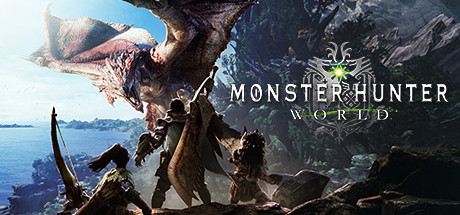
Monster Hunter: World is what happens when a series has a very strong core identity is given a fresh rethinking, smoothing much of the tedious and outdated series conventions while having the confidence to leave the depth of its mechanics intact or expanded. There’s a lot of ways it could have gone wrong, watering down some of what makes the games appealing to begin with in the name of accessibility. While it isn’t perfect, the fact that they did as well as they did should be lauded. Sure, some of these changes were probably overdue, but it’s still a big leap forward, and the fact that the market rewarded Capcom for it is great to see. Personal background: I’ve tried multiple times to get into the series, because on paper fighting big monsters with complex behavioral patterns with slower, deliberate movement (a bit like Dark Souls) sounds great on paper, but then they’d never click. Even so I’ve listened to enough Monster Hunter talk on the 8-4 Play podcast to understand the appeal, even if I myself couldn’t get into them, and even as I’ve liked some MH imitators like Toukiden and Freedom Wars to various degrees. With World though everything came together, and clicked immediately. The on ramps are much better, the tedious stuff is streamlined or removed entirely, and movement is slightly faster, even though it’s still retains the sense of heaviness of swinging giant anime swords made of dragon bones around.
The combat of course is the heart of the game, and the fact that there is some much variety in terms of weapons, in both number of types and how different most of them feel, is impressive. You can play some relatively straightforward weapons if you just want to hit stuff, to more intricate types that take work to use effectively but are that much more satisfying to use when it all comes together. I didn’t have interest in trying every weapon, but the fact that I was juggling five different kinds of weapon by the time I had my fill with the game adds a lot of replayability. The other stars of the show is of course the monsters themselves. MH is all about conveying your targets as living things that have distinct personalities and behavioral patterns and are part of a larger ecological web. I love how many different animations they can have when you're fighting them, and when they interact with other monsters and get in a territory scuffle is cool to see. The battles can be kind of battle spongy, but the fact that taking down can last 20-30 minutes and multiple encounters just makes it feel epic (plus they go down a lot quicker when you have a better gameplan of what to expect and/or have better gear).
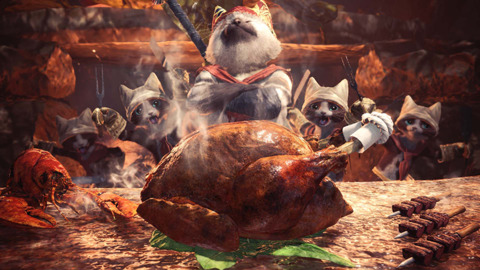
Beyond that though I even like the story quite a bit. Not that it has much in the way of characters or that the plot is super interesting, but it does a great job of conveying wonder of this heightened nature and making your first encounter of these creatures memorable. I also that it doesn’t take itself too seriously: from the outsider MH aesthetic seemed a bit weird, but now I totally get the jolly vibes it’s going for. Also, the music is great! It’s been some time since I’ve been dug an orchestral score of this type; it really captures beauty of the environments and the bombastic moments elevates the big encounters.
It’s been a long time I’ve been as hot and heavy of just wanting to play more as I was for MHW this year. Sure it isn’t perfect (matchmaking is pretty unintuitive, the endgame does lack in variety for how grindy it is) but it is easily going to be a generational highlight and made me a fan of the series going forward.
So there you have it. Kinda light on the big obvious AAA releases this year but that how it goes (I do think Red Dead at least would have made it). Maybe I’ll make a few blog posts between now and GOTY 2019 lol.